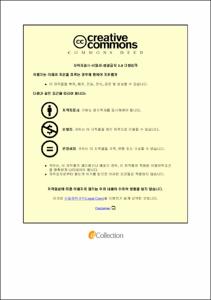국내 조선기자재 중소기업의 해외진출 성과에 대한 수출지원정책의 영향에 관한 실증연구
- Alternative Title
- An Empirical Study on the Influence of Export Support Policy on the Performance of Small and Medium-Sized Korean Shipbuilders in Korea
- Abstract
- Korea's shipbuilding industry has developed into an important pillar of the national infrastructure industry while growing to a greater extent through trade between countries. As the demand for ships increased worldwide, the shipbuilding industry began to develop around Busan and South Gyeongsang Province, and naturally the shipbuilding and equipment industries also grew together. But in recent years, the shipbuilding industry has faced a persistent crisis and its impact has hurt the shipbuilding and machinery industries as the industry has stagnated. In particular, Korea's shipbuilding and machinery industries are heavily dependent on the three major shipbuilders (Daewoo Shipbuilding &Marine Engineering, Samsung Heavy Industries, and Hyundai Heavy Industries), which led to the crisis of the three shipbuilders. To overcome this problem, the government has prepared and implemented various support policies to revitalize the shipbuilding and equipment industries, and export support policies are being developed to overcome the order crisis due to market diversification through expansion of export channels. Recognizing the need for research on the impact of such export support policies on overseas advancement of shipbuilding and equipment companies, this study aims to provide a research model for analyzing the relationship between the government support policy and export performance by considering factors such as corporate capacity, domestic and external market environment, and corporate capacity, and to contribute to the design and development of effective export support policies by conducting empirical analysis. To achieve this goal, the survey was conducted on 1,259 small and medium-sized export companies in Korea for shipbuilding and equipment and materials and verified their research models and assumptions using SPSS 23.0. Looking at the results of the empirical analysis of the hypotheses in this study, it has been found that the hypothesis that export support policies have a significant impact on the performance of the enterprise, and that the performance of the company's overseas expansion varies depending on the internal capacity level of the CEO. In addition, the export environment of trade barriers has proven to be a modulating variable that significantly affects the performance of companies entering overseas markets. On the other hand, factors such as technology capabilities, marketing capabilities, and relationships with affiliates have no statistically significant impact, as expected. In terms of analysis related to corporate capabilities, it can be inferred that the mid- to long-term development strategy of the company through CEO's leadership is significant to the performance of overseas advancement rather than focusing strategy on the technology and external promotion of the company, and that the government's support of removing trade barriers in terms of small and medium-sized export companies contributes above all else to generating performance. To sum up, it is expected that domestic companies' overseas advancement performance will be maximized if the establishment and implementation of corporate strategies to enhance CEO capacity are combined with government-level policy measures such as supplementing gaps in the export support system and promoting negotiations among countries to boost exports.
Topic : shipbuilding and equipment industries, corporate capability, support policy
- Issued Date
- 2020
- Awarded Date
- 2020. 2
- Type
- Dissertation
- Publisher
- 부경대학교
- Alternative Author(s)
- Heesang Park
- Affiliation
- 부경대학교 대학원
- Department
- 대학원 기술경영협동과정
- Advisor
- 김영진
- Table Of Contents
- Ⅰ. 서 론 1
제 1 절 연구 배경 및 목적 1
제 2 절 연구의 방법 및 논문의 구성 5
Ⅱ. 선행연구 7
제 1 절 중소기업 수출지원제도에 관한 선행연구 7
1. 수출지원제도 7
제 2 절 내부적 요인에 관한 선행연구 9
1. CEO 특성 9
2. 기업역량 10
3. 외부적 요인 12
4. 수출성과 14
5. 국내 조선기자재 산업 현황 16
Ⅲ. 연구의 설계와 방법 22
제 1 절 연구 모형의 설계 22
제 2 절 연구 가설의 설정 24
1. 수출지원과 수출성과 간 관계 24
2. 기업역량과 해외 진출 성과 간 관계 24
3. 수출환경과 해외 진출 성과 간의 관계 25
Ⅳ. 실증분석 27
제 1 절 조사 개요 및 자료 분석 27
1. 조사개요 27
2. 자료 분석방법 28
3. 표본의 특성 28
4. 기술통계 30
5. 요인분석 및 신뢰도 분석 31
6. 상관관계분석 34
7. 가설의 검증 38
Ⅴ. 결 론 55
제 1 절 연구결과의 요약 및 시사점 55
1. 연구결과 요약 55
2. 연구결과 시사점 57
제 2 절 연구의 한계 및 향후 연구방향 59
참고문헌 60
설문지 64
- Degree
- Master
- Files in This Item:
-
-
Download
 국내 조선기자재 중소기업의 해외진출 성과에 대한 수출지원정책의 영향에 관한 실증연구.pdf
기타 데이터 / 987.6 kB / Adobe PDF
국내 조선기자재 중소기업의 해외진출 성과에 대한 수출지원정책의 영향에 관한 실증연구.pdf
기타 데이터 / 987.6 kB / Adobe PDF
-
Items in Repository are protected by copyright, with all rights reserved, unless otherwise indicated.